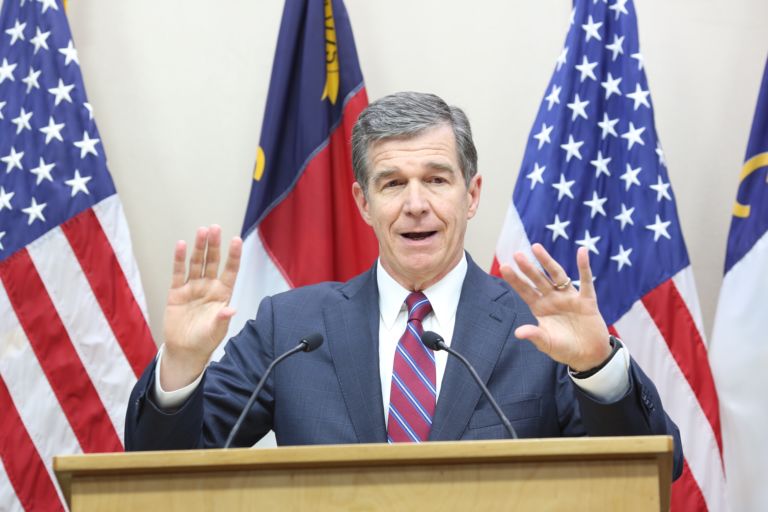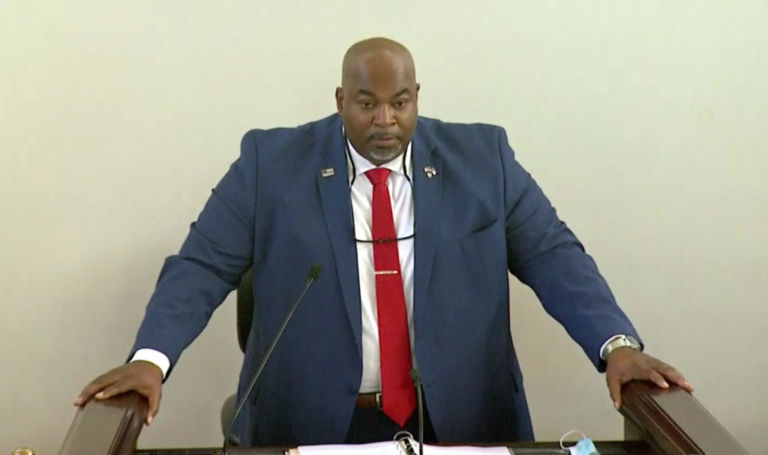- America’s public schools have a duty to ensure that they cultivate active, knowledgeable, and discerning citizens
- Studies suggest that many citizens have a negligible understanding of history, economics, and government
- The proposed social studies standards for North Carolina public schools fail to provide a framework for ensuring that children possess a satisfactory understanding of our social, political, and economic systems
Back when late-night talk shows were worth watching, one of my favorite segments was “Jaywalking.” During his long tenure as host of The Tonight Show, comedian Jay Leno would hit the streets of Los Angeles to pose basic civics questions to willing passersby. Leno’s audience would delight in the number of those who couldn’t answer basic questions about their government. Name the three branches of government? Occasionally. Identify the vice president? Probably not. Name any members of the U.S. Supreme Court? Good luck. Describe the Bill of Rights? Not a chance.
Jaywalking was the comedic expression of a national travesty. Researchers, educators, and pundits have warned Americans about rampant civic illiteracy for several decades, but there have been few signs of improvement. The 2020 Annenberg Civics Knowledge Survey, for example, found that only half of adults surveyed could name the three branches of government. Nearly one in five respondents couldn’t name any right guaranteed by the First Amendment.
The fact that any American, let alone a voting-age adult, cannot recall basic facts about the nation’s political system is an indictment of the institution responsible for educating them: public schools. Taxpayers assume that the hundreds of billions of dollars poured into the American public school system will produce active, knowledgeable, and discerning citizens. And yet only 15% of eighth-grade students were deemed proficient on the 2018 National Assessment of Educational Progress (NAEP) U.S. history test. Around one in four students scored at or above proficient on the NAEP civics and geography tests administered the same year.
In North Carolina, the State Board of Education and the Department of Public Instruction are responsible for ensuring that our public schools produce high school graduates equipped with the knowledge and skills necessary to be productive citizens. And those formative efforts primarily occur in public school social studies classes. So when state officials began their periodic review of state social studies standards in 2019, it was an opportunity to strengthen standards that had not been revised in a decade.
While teachers ultimately retain control of day-to-day instructional matters, state standards lay the foundation for what children will learn in the classroom. More importantly, they provide children a framework for helping them understand the ideals embodied in the American experiment.
Unfortunately, members of the State Board of Education railroaded the social studies standards adoption process last year, asking Department of Public Instruction staff to infuse the standards with language that reflected their left-wing ideology. The tone of the standards was changed dramatically. The previous version tried to strike a balance between competing visions of the nation. It highlighted groups’ struggles without abandoning the hope that those struggles could become exceptions in our history and not the rule. Critically, the new version of the standards sought to convey one vision, clumsily placing race, class, and gender conflicts at the center of the story at the expense of seeking to ensure children possess a satisfactory understanding of our social, political, and economic systems.
Some members of the State Board of Education have disagreed with these changes. Dr. Olivia Oxendine, Amy White, Todd Chasteen, and most recently Lt. Gov. Mark Robinson have been the most outspoken opponents of the revised standards. Superintendent of Public Instruction Catherine Truitt identified critical shortcomings in the standards and requested additional time to review them. To accommodate her request, the State Board of Education called a special meeting on January 27, a week before the board’s regularly scheduled meeting.
Truitt proposed three revisions to the social studies standards and a plan for developing additional resources to support implementation. The word “systemic” would be removed from the terms “systemic racism” and “systemic discrimination.” In addition, the term “gender identity” would be changed to “identity.” Supporting documents developed over the next seven months would include a glossary and other resources for social studies teachers.
Without a doubt, those are necessary measures. But much more needs to be done.
North Carolina needs social studies standards focused on civic literacy and dedicated to providing students a balanced perspective of American history. A balanced view does not attempt to conceal the nation’s mistakes. Instead, it gives equal weight to failures and successes. It identifies errors and facts. It affirms our ideals, even as we work to create a society that honors them.
This perspective is shared by the 26,000+ North Carolinians who have signed Robinson’s petition opposing the draft under consideration. The State Board of Education should delay their scheduled vote on their standards this week to consider the concerns of the thousands of citizens who signed the petition and countless others who corresponded directly with the board members.
The consensus of America’s founders is that a free nation requires an informed citizenry. As James Madison declared, “The advancement and diffusion of knowledge is the only guardian of true liberty.” Given that our schools have abandoned the advancement and diffusion of knowledge in favor of leftist indoctrination, it’s remarkable that we have any liberty left.


